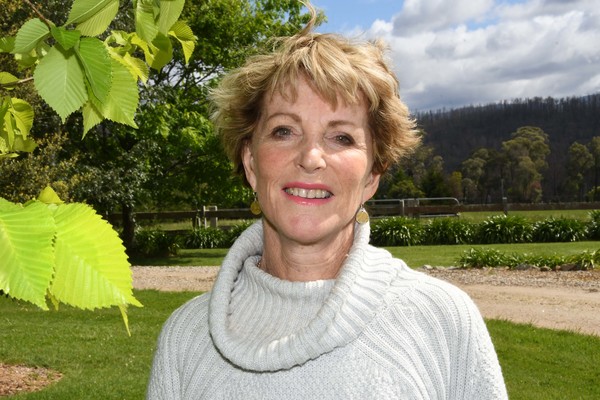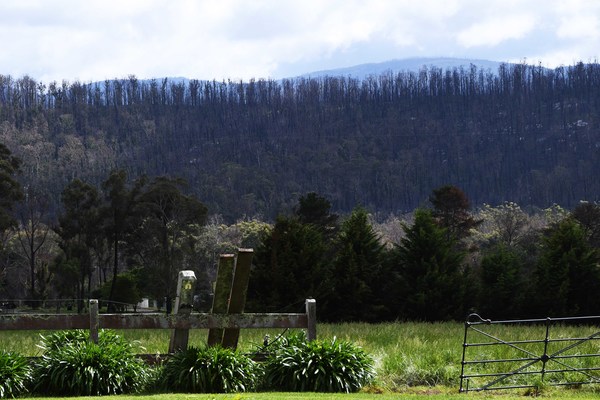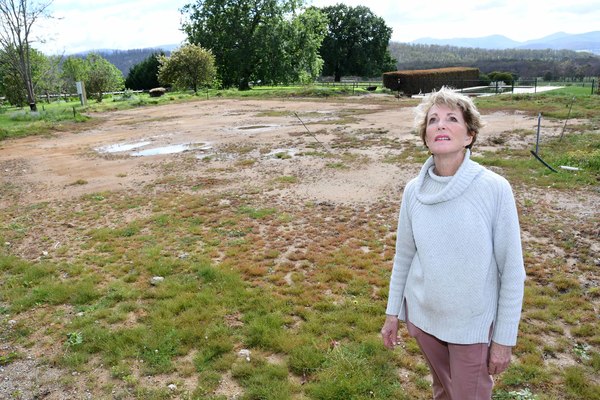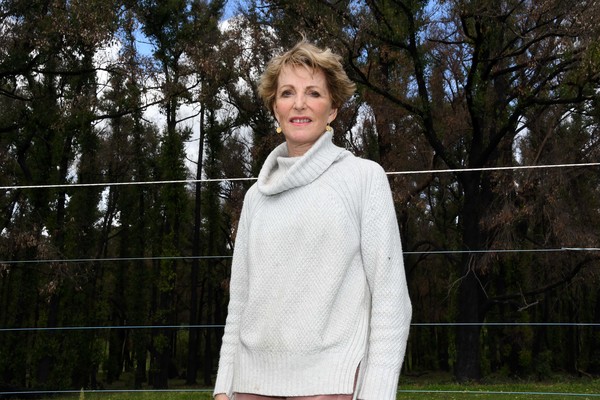
By Mitchell Clarke
PRECEDE: As a potentially devastating fire season looms, victims of March’s Bunyip State Park bushfires are still grappling with their own clean-up efforts and the prospect of more bushfires is beyond comprehension, as MITCHELL CLARKE explains.
BREAKOUT QUOTE: “I don’t cope every day, there are days where I just can’t cope, but thankfully those days are becoming less common.”
Sue McMahon leans against a single metal pole looking over at what once stood her home –the past year has been heart wrenching to say the least.
The McMahon’s Tonimbuk property was completely destroyed in the March bushfires, with all of their possessions including floats, machinery, tools, hay and firewood reduced to rubble.
Sue and her husband David were in the middle of renovating their barn to expand their Airbnb business earlier this year.
They were at a time in their lives where they were supposed to be reaping the rewards of living the tranquil life in a small community town, a world away from the hustle and bustle of the suburbs.
But with almost no notice, their loveable township fell into the path of Mother Nature’s fury, completely shifting their short term goals as they were forced into survival mode.
“Initially you feel like a stranger in your own community, like you don’t belong and you don’t want to be there,” Sue said.
“You just want to press rewind and be back to where you were before it all happened.”
Describing the realisation of losing their house, Sue could only find the word “heartbreaking” to explain the entire ordeal.
“It really was heartbreaking,” she said.
“I think I was in the foetal position for about a month, but you get to the point when you know that it’s not really productive anymore.”
But the McMahon’s are no stranger to tragedy – Sue rightly describing her husband and herself as “doers, not sitters”.
That’s an understatement, as the couple remain defiant rather than destroyed.
In 2017, Sue was diagnosed with breast cancer but that wasn’t all that’d be thrown at the pair, who also lost a valuable horse after it was struck and killed by a lightning bolt in a freak accident. Their breeding dog was also hit and killed by a car.
“I don’t cope every day, there are days where I just can’t cope, but thankfully those days are becoming less common,” Ms McMahon explained.
Following the fire, the couple moved accommodation five times before eventually relocating to a friend’s granny flat in Warragul. The flat wasn’t habitable, so the couple repaired it while simultaneously attempting to pick up the pieces back in Tonimbuk.
“When this happens, your physical environment is completely destroyed but it has such an impact on your mental health as well.
“Ultimately, it leads to mental health issues, everyone’s mental health is affected by this experience, whether you lost property, your house or fencing, or even if you fought the fire, whatever your experience was, your mental health will be affected.
“You need to see there is progress being made to restoring normality because that’s what you’re familiar with and that’s what you need.”
Arguably one of the driving forces in rebuilding that normality in her community, Sue McMahon is vice chair in the Community Recovery Committee for the Bunyip Fire Complex.
The committee meets every fortnight in a range of different locations, from Tonimbuk to Tynong North, with the purpose of identifying issues among community members and addressing those issues through advocating with politicians or relevant authorities.
“Being on the committee gives me a focus, a positive focus, it makes you aware of what people have suffered, rather than just getting caught up in what you’re going through,” she said.
But that focus is often overshadowed by the lack of support they’ve received. So much so, they’ve been left with no option but to repeatedly call on all levels of government for assistance in cleaning up private land.
“Really, we’ve had very little come our way,” she explained.
“This is people’s lives they’re affecting by not responding as quickly and efficiently and effectively as they should be.
“After Black Saturday, it should be like a well-oiled machine, the timeframe in which recovery occurs shouldn’t take this long.
“I’d like to think after the devastating Black Saturday fires where many lives were lost, that we can put in place a much more user-friendly system of recovery that doesn’t involve nearly as much bureaucracy.”
Despite the anguish, the committee is always quick to acknowledge the support they’ve received from countless volunteers.
“The help, the generosity and the kindness of the community, we were able to be humbled by their assistance and that makes you realise you’ve still got each other,” she said.
“There’s a lot of physical infrastructure damage but I guess you just focus on the cliché, ‘it could’ve been worse’.”
But that’s the absolute last thing anyone wants to hear during a crisis.
“Yes, it could’ve been worse but at that very moment, you don’t want to hear that what you’re going through could’ve been worse.”
And while it can only be a matter of time before things start to look up, their run of bad luck wasn’t finished with yet.
In separate accidents David fell off a ladder the day they moved back to their Tonimbuk property, shattering his foot and confining him to a wheelchair for eight weeks.
Four days later, Sue also fell off a ladder and broke her foot, leaving the couple both in moon boots.
But they remain living proof of the word ‘defiance’, vowing that they’re ready to rebuild, they’re also ensuring their property is best prepared for a potentially devastating fire season.
“I am worried about the upcoming fire season,” Sue admits.
“Our close neighbours haven’t been able to clean up their property which is like a warzone, they need help and I’ve tried to organise help for them.
“Their property poses a risk for us, as do other neighbouring properties where tea tree hasn’t burnt through and fuel on the ground is fuel for fire.
“The whole community is scared about the possibility.”
But for the time being, they’re just happy to be home.











